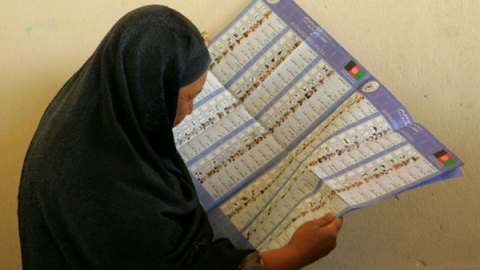How Afghanistan Is Like Pornography

How will we know when we have achieved success in Afghanistan? According to Richard Holbrooke, our special envoy to the region, “We’ll know it when we see it.” That’s a fuzzy definition, to be sure, one reminiscent of the murky legal definition of pornography. It’s become a throwaway phrase, akin to “it is what it is” and “whaddaya gonna do?” It allows envoys and diplomats to dodge tough questions, like what are the benchmarks of success in the war in Afghanistan and will we know when it’s time to hit the exits?
The previous administration fumbled this question more than once when it came to Iraq. Now it’s the Obama administration’s turn. It’s not reassuring when the top envoy to the region cannot even specifically point to what benchmarks must be met for us to define success.
The images of voters with ink-stained fingers, while truly remarkable, given the threats voters face, obscures the Afghan conundrum of why we’re fighting there. The trouble is, every time there is an election, the war’s proponents can hold this up as evidence that the vast majority of Afghans want democracy and therefore we must stay because to pull out would be to turn our backs on everyone who risked their life to vote.
The election may provide evidence that Afghans want peace, stability, and good governance. It may even indicate Afghans’ growing distrust of the Taliban. But it doesn’t necessarily mean that Afghans want democracy, as we know it in the West. Every time there is an election in a wartorn land we’ve invaded, it shouldn’t obscure the debate here over whether and when to pull out (I do not believe we are abandoning these Afghans if the U.S. military decides our presence is exacerbating the situation). But that requires that we first have a definable meaning of success. Sorry to say but “we’ll know it when we see it” doesn’t quite cut it.





